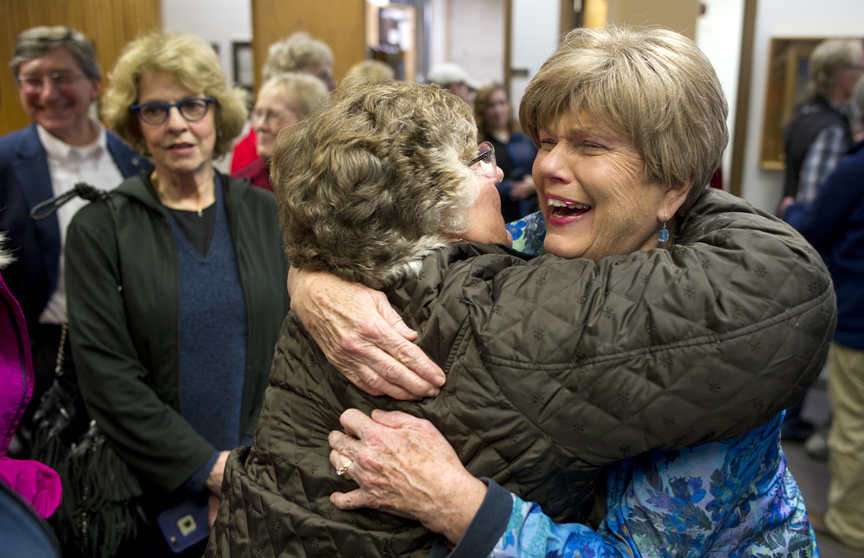More than one third of all registered Juneau voters cast a ballot in this year’s municipal election. That marks an improvement over last year’s turnout, but there is still plenty of room to improve.
Of Juneau’s 25,100 registered voters, 8,413 cast ballots in the city election, marking a voter turnout of 33.5 percent.
“Thirty-four percent is a good number for us, but gosh what does that say? We can’t stop there,” said Juneau Libraries Director Robert Barr. “We need more people engaged in our local democracy.”
For the past couple years, Barr has been working to make that happen. He helped start Juneau Votes — a non-partisan collaborative voter-engagement group — in 2014 after municipal election turnout bottomed out at about 19 percent in 2013.
It’s difficult to say what role specific civic groups like Juneau Votes and the League of Women Voters have played in increasing city election turnout, but it’s clear that their collective impact is starting to move the needle in the right direction — albeit slowly.
After voter turnout dipped from nearly 30 percent in 2014 to about 24 percent last year, turnout has been climbing. In March’s special mayoral election, 33.4 percent of Juneau voters turned out to elect Mayor Ken Koelsch.
“It wasn’t any one single group or person or entity that made this happen. It was all of us working together, and I’m extremely proud of that,” league member carolyn Brown told the Empire Wednesday.
Included in the collaborative engagement effort that Brown commended were the candidates themselves. Brown and Barr both noted that this year’s election seemed to be visible than in years past, due largely in part to the campaign efforts of the candidates competing for seats on the Juneau Assembly and School Board.
“It felt like it was more obvious that there was an election going on in the community,” Barr said.
Norton Gregory, the unofficial winner of the open areawide Assembly seat, has a slightly different explanation for the increasing voter turnout.
Gregory agrees that the collaborative efforts of civic groups helped get more voters to the polls. The Tlingit-Haida Regional Housing Authority, for which Gregory works, took part in one such effort. It helped register voters as a part of the Get Out the Native Vote program, organized by the regional housing authority, Sealaska, the Southeast Alaska Regional Health Consortium, and the Central Council of Tlingit and Haida Indian Tribes of Alaska.
But Gregory also credits lingering anger over the Assembly’s 2015 decision to restrict the senior sales tax exemption for the uptick in turnout.
“The seniors are still a little bit upset about the tax exemption,” Gregory said.
The city won’t hand over its voter rolls — the list of people who are registered to vote in Juneau — to the state until the election is certified on Tuesday. Once that roll is public, it would be difficult to track the age of everybody who voted in this year’s election to corroborate Gregory’s suspicion. Birthdates are kept confidential in the voter-registration process, according to City Clerk and Election Official Laurie Sica.
It’s worth noting, though, that every candidate who spoke out against the senior sales tax restriction — Gregory, Mary Becker and Beth Weldon — won the seat that he or she sought.
Potential senior surge aside, municipal election turnout generally tends to be higher during presidential election years, Sica has told the Empire several times.
Regardless of why this year’s election drew more voters, Barr, Brown, Gregory and most other people involved in city politics hope this upward trend continues.
“We just need to keep doing what we did in this last election in every election; it’s working,” Gregory said.
• Contact reporter Sam DeGrave at 523-2279 or sam.degrave@juneauempire.com.

